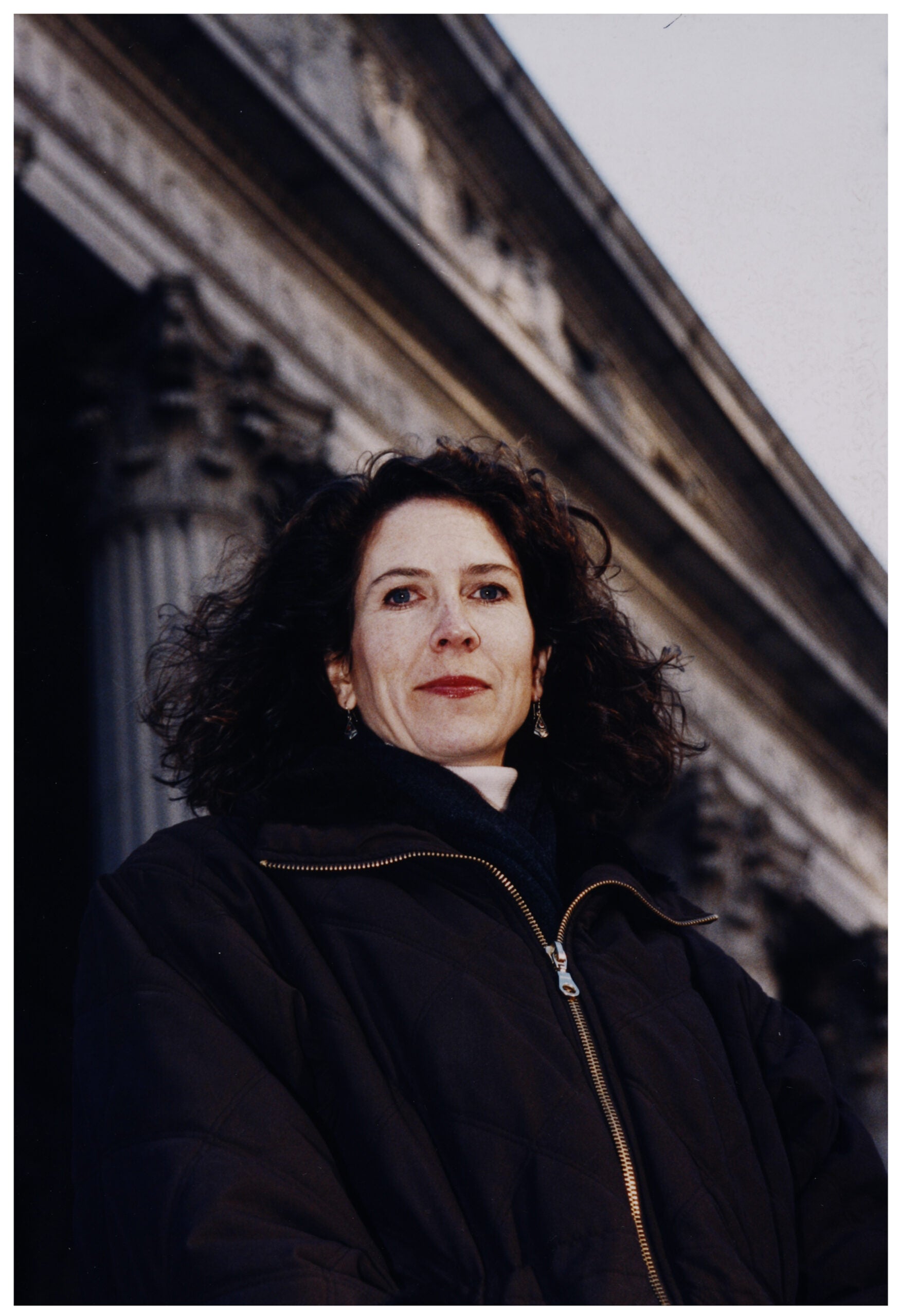Sandra Babcock pioneers use of international law in capital punishment appeal
After spending 22 years on death row in a Texas prison, Stanley Faulder, a Canadian citizen, died by lethal injection on June 17, 1999. Faulder’s execution was “barbaric, senseless, and unjustifiable,” says his attorney, Sandra Babcock ’91. But Babcock’s novel strategy in attempting to prevent it could save the lives of other foreign nationals on death row in the United States. And the case, which elicited considerable media attention in Canada, appears to have weakened a movement to reinstate the death penalty there.
In her defense of Faulder, Babcock drew on international law, focusing attention on the right of an individual arrested or held by the police in a foreign country to contact his or her home consulate, a right denied Faulder when he was arrested for killing a 75-year-old woman during a robbery attempt in her Texas home. “The failure of U.S. officials to inform him of this basic human right was a violation of the Vienna Convention on Consular Relations,” says Babcock, noting that the United States has been routinely ignoring the treaty since it was ratified by 140 countries, including the United States and Canada, in 1969.
Neither Canadian officials nor Faulder’s family learned of his incarceration until 15 years after his conviction in 1977. “Although Canada had requested the names of all Canadians imprisoned in Texas each year, Faulder’s name was omitted from every list,” says Babcock. “Had he known of his right to contact his consulate, consular officials would have provided him with a list of competent, experienced defense lawyers and would have notified his family of his predicament. Instead, he was represented by an inexperienced, court-appointed lawyer who failed to call a single witness at the penalty phase of his case.”
Since Babcock’s much-publicized efforts on Faulder’s behalf, “the U.S. government has started notifying detained foreign nationals of their right to contact their consulates,” she says. “Even local police departments, the FBI, and prosecutors are doing it.”
Babcock took up Faulder’s case right after graduating from the School, as an attorney for the Texas Resource Center, a federally funded agency providing legal assistance to poor people on death row. She kept the case pro bono when she became a public defender in Minneapolis in 1994, and a solo practitioner in 1999. On nine separate occasions, Babcock achieved stays of execution for her client. Faulder had never had a fair trial, she argued: the wealthy crime victim’s family hired private prosecutors — which is permissible in Texas — and paid witnesses to testify, and the private prosecutors suppressed crucial evidence.
In November 1998, with Faulder’s ninth execution date looming, Babcock filed a motion in the U.S. Supreme Court stating that Faulder’s rights had been violated under the Vienna Convention. She had originally raised the Vienna Convention claim in state court on her client’s behalf in 1992. “I resurrected the argument in 1998, because a number of courts had addressed the issue by then, and there had been a few highly publicized executions of foreign nationals whose rights under the convention were violated. I thought the Supreme Court would be interested in examining the issue,” she says.
An unprecedented occurrence followed, when Secretary of State Madeleine Albright intervened for the first time ever in a Texas death penalty case, taking Babcock’s argument to Governor George W. Bush. The Canadian government also pressed for a reprieve for Faulder, and on December 10, 1998, only minutes before he was scheduled to receive a lethal injection, the U.S. Supreme Court granted him an indefinite stay of execution.
In early 1999, the Supreme Court dissolved the stay and denied Babcock’s cert petition without comment. Six months later, with Faulder’s tenth execution date set for June 17, 1999, Babcock once again looked to international legal norms, suing Governor Bush and the Texas Board of Pardons and Parole for tortious violations of international law. “I argued that the number of execution dates Faulder had faced constituted torture,” she says. “I did not prevail, but I thought that challenging the execution process under international law was a ripe area, and I continue to think so.” At Stanley Faulder’s request, Babcock witnessed his execution, along with the Canadian Consul in Dallas. “He was a very decent person,” she says.
The first U.S. attorney to litigate the Vienna Convention issue in the case of a foreign national on death row, Babcock finds herself today at the center of an incipient movement of defense attorneys drawing on international norms in capital cases. “Now there are Vienna Convention cases in state courts all around the country,” she says. “What started as an obscure legal issue has become quite significant in the criminal defense field.”
In June 1998 Babcock was in Costa Rica, one of several attorneys representing non-governmental organizations and countries including Mexico, Guatemala, Paraguay, Honduras, and the Dominican Republic, as well as the United States, arguing the Vienna Convention issue before the Inter-American Court on Human Rights. “Mexico had brought a case challenging the repeated violations of the Vienna Convention and had petitioned the court for an opinion on the parameters of the treaty and on remedies for foreign nationals. The court eventually held, in an opinion issued October 1, 1999, that a state is in violation of international law if it executes a person whose rights have not been upheld under the Vienna Convention.”
“The Inter-American Court decision came too late for Stan,” Babcock continues, “but I take some consolation in the knowledge that it can help other foreign nationals facing the death penalty in the United States.”
